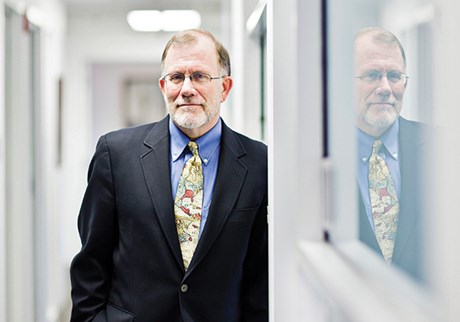Michael Cromartie is guiding media elites into a more accurate view of conservative Christians.

When Rick Warren arrived at the Faith Angle Forum in Key West, Florida, in May 2005, the megachurch pastor addressed one of the last remaining groups in America that knew almost nothing about him: journalists. In the room were 20 of the most influential voices in media, including New York Times columnist David Brooks, best-selling author Malcolm Gladwell, and The New Yorker's Elsa Walsh. Although The Purpose Driven Life had already sold 25 million copies, says Brooks, "I'm not sure many in the room had heard of him."
For many elite journalists at the time, modern American Christianity was a strange and vaguely menacing hydra featuring the heads of Pat Robertson, Jerry Falwell, and the crazed sandwich-board prophet who breathed fire in their general direction on the local street corner. Yet here was Warren, an exemplar of evangelicalism's West Coast variety, a species redolent of sunshine and casual conviviality. He distributed handshakes and hugs and thoughtful compliments on recent columns and reports. "Suddenly you saw a very different world," says Brooks. "This was not some fringe preacher. That had an impact on the group."
Now, eight years later, a new evangelical standard-bearer, Tim Keller of Redeemer Presbyterian Church in New York City, is addressing the same assembly. The move from Warren to Keller speaks to how American Christianity has changed in the interim. Whether the media have kept apace on such changes is debatable. There's no question that the mavens of mainstream media are still wont to treat "fringe" figures as central ones. Witness the elevation of Qur'an-burning Florida pastor Terry Jones to the status of an evangelical icon and a convenient …
Source: Christianity Today Most Read